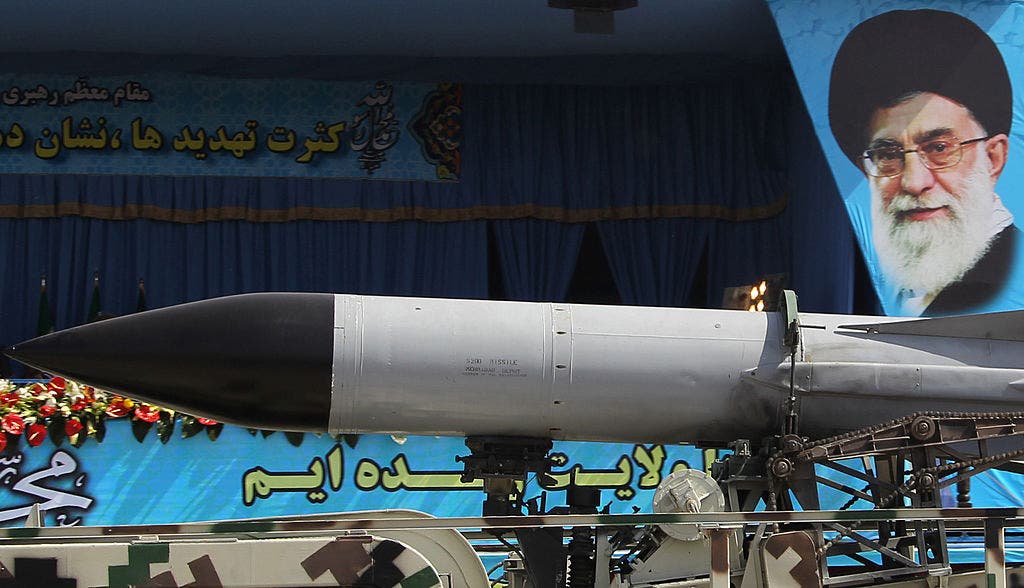Former top security head of the U.S. Central Command (CENTCOM), Gen. Kenneth McKenzie, is warning that U.S. bases in the Middle East could be overwhelmed by Iranian missile fire. McKenzie, now a Hertog senior fellow with the Jewish Institute for National Security of America (JINSA), argues that U.S. bases in the Arabian Gulf are vulnerable to Iranian assault due to Tehran’s advancements in its weapons capabilities. As a result, McKenzie is advocating for a new basing strategy that involves creating a flexible western basing network for America’s air assets to complicate Iran’s ability to target U.S. forces and raise the cost of aggression.
McKenzie explains that some of the top U.S. bases in countries like Qatar, UAE, and Bahrain, which once served as a deterrent against malign actors, are now weak points in the U.S.’s force posture in the region. With advancements in technology and missile development, base placement needs to be reconsidered. Iran possesses short-range missile capabilities, while its medium- to long-range abilities are lacking. McKenzie highlights that Iran has developed very capable ballistic missile capabilities, including theater range ballistic missiles, land attack cruise missiles, and drones, which pose new threats that the U.S. may struggle to defend against, even with highly capable systems like the Patriot missile defense system.
The retired general, who served as CENTCOM commander for three years before retiring from the Marine Corps, emphasizes the need for the U.S. to work closely with regional allies like Saudi Arabia, Jordan, Oman, and Egypt to relocate bases farther away from Iran. McKenzie suggests identifying bases as far west as possible to deploy aircraft, maintenance capabilities, refueling capabilities, and weapons out of reach of Iran. He also indicates that partnering countries in the region have already shown interest in this proposal, as improvements to bases in the west of countries like Saudi Arabia benefit the Saudis by enhancing their self-defense capabilities. These bases are intended to be dual-use, serving both U.S. interests and assisting in the defense of host nations.
In addition to the direct security threat posed by Iran, McKenzie warns of the threat posed by Iran’s use of terrorist groups to fight proxy wars in the Middle East. He underscores the importance of deterrence, which he believes is achieved through a credible demonstration of will and the capability to fight and win if necessary. McKenzie contends that deterrence must be a continuous effort, as it can have a short half-life in the Middle East unless systematically refreshed. He stresses that maintaining deterrence against Iran and its proxies requires a strategic and proactive approach that includes not only military capabilities but also diplomatic and political efforts to build strong alliances and partnerships in the region.
Overall, McKenzie’s report highlights the need for the U.S. to reassess its basing strategy in the Middle East in response to growing threats from Iran. By creating a more flexible and strategically positioned western basing network, the U.S. can better protect its forces and deter aggression from Iran. Collaboration with regional allies, such as Saudi Arabia and Jordan, is essential in relocating bases to safer locations and enhancing the defense capabilities of host countries. The ongoing challenge of countering Iran’s missile capabilities and proxy wars underscores the importance of maintaining a strong and credible deterrence posture in the region to safeguard U.S. interests and ensure stability.













